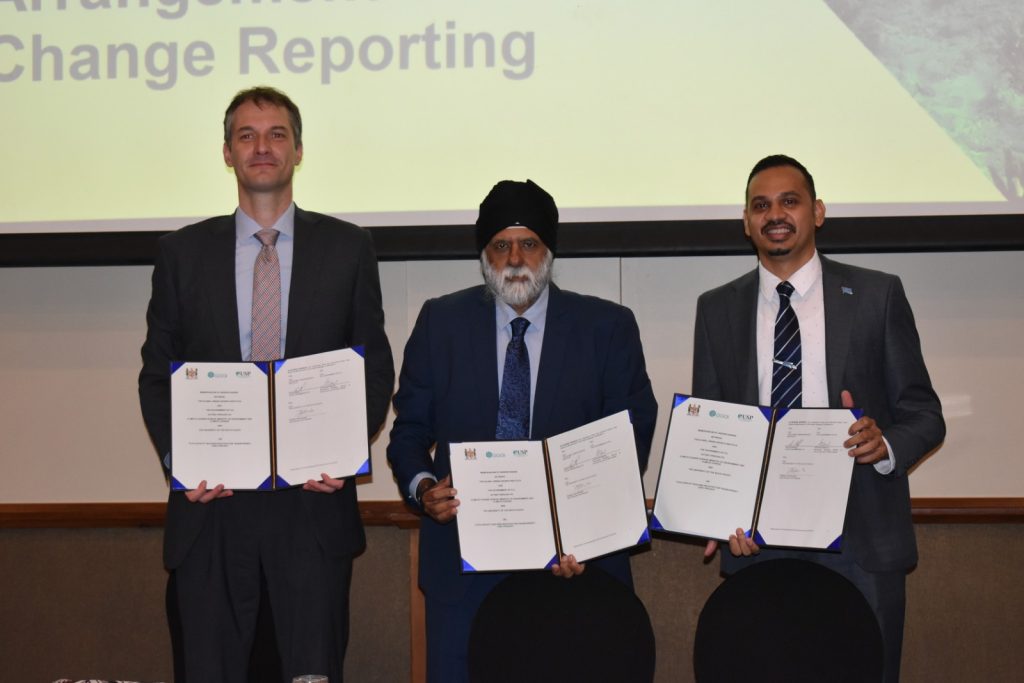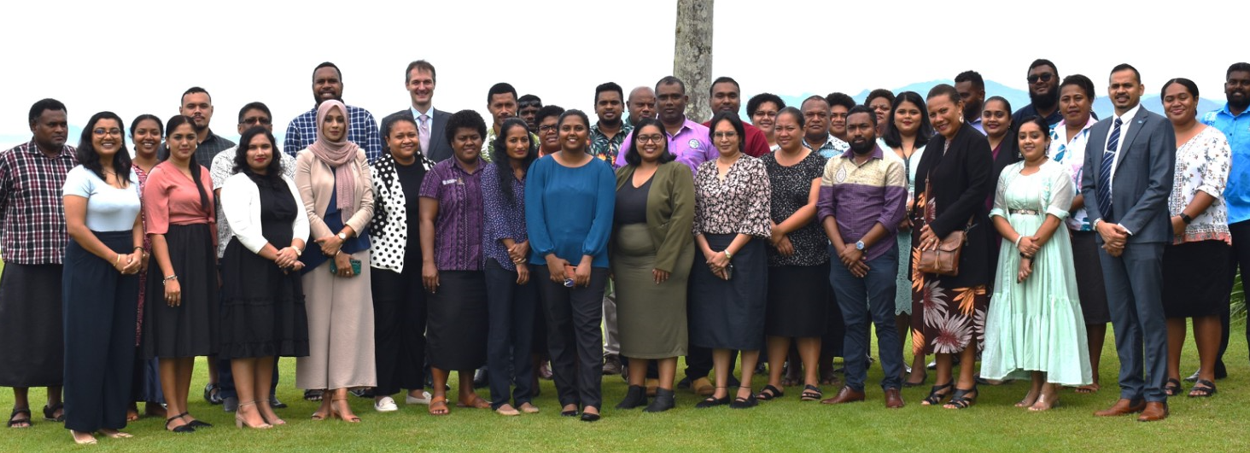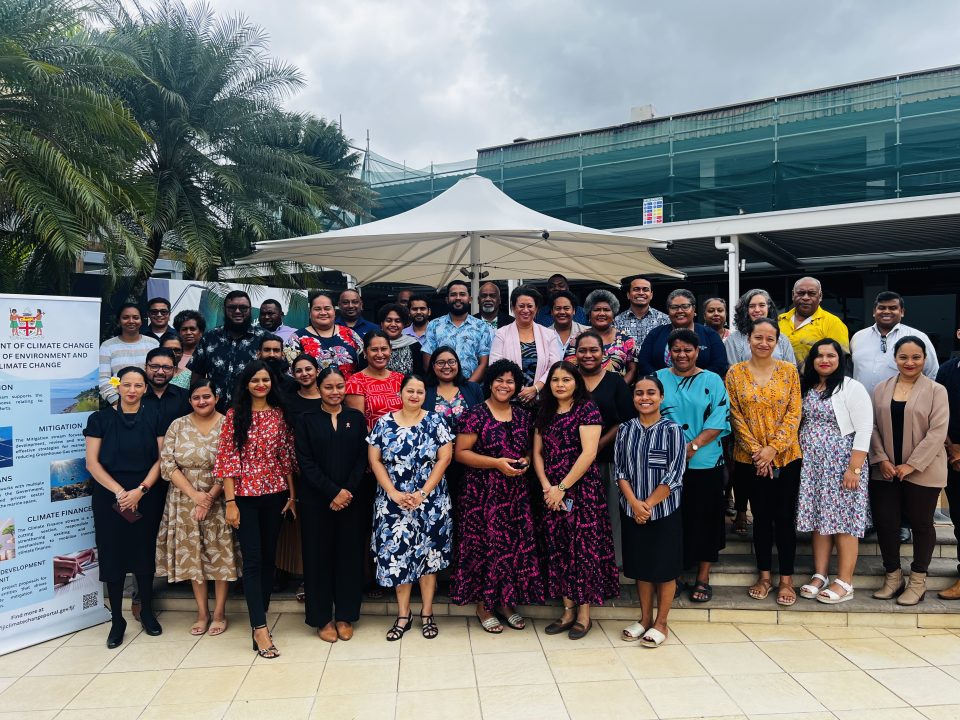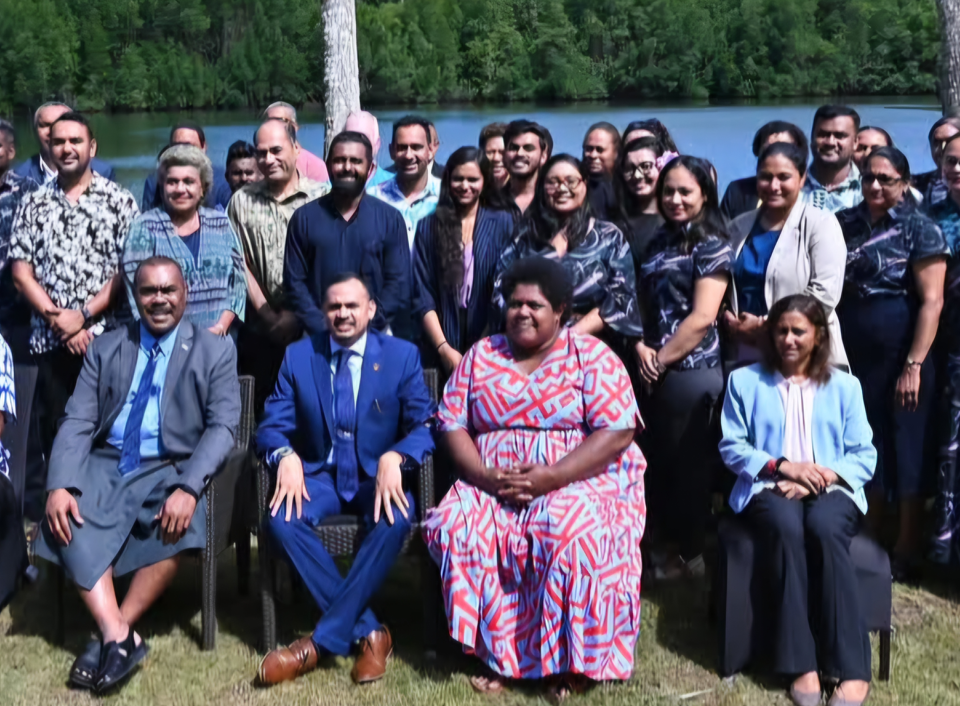
Fiji’s National Carbon Market Strategy Roadmap Validation Workshop Considers Action Plan
25/03/2024
Tender- Fiji’s Digital Climate Transparency Tool for Paris Agreement Reporting (Design and Implementation of an IT-based MRV Systems for GHG inventory and NDC Tracking)
04/04/2024 The Climate Change Division of the Ministry of Environment and Climate Change (MECC) organized a Validation Workshop on Fiji’s Institutional Arrangements for Climate Change Reporting as part of the Fiji’s Capacity Building Initiative for Transparency (CBIT) Project on 27th March, 2024, in Suva.
The Climate Change Division of the Ministry of Environment and Climate Change (MECC) organized a Validation Workshop on Fiji’s Institutional Arrangements for Climate Change Reporting as part of the Fiji’s Capacity Building Initiative for Transparency (CBIT) Project on 27th March, 2024, in Suva.
The workshop was welcomed by Dr Sivendra Michael, the Permanent Secretary of MECC. In his address the Permanent Secretary stated “As the 7th country, and the first Small Island Developing State country to legislate its net zero emissions targets, we had started to think about our requirements to support Greenhouse gas (GHG) monitoring, reporting and verification through the Climate Change Act, 2 years back. Because our reporting, particularly in relation to our GHG inventory, is dependent on our ability to access specific sectoral data and information, this legislation creates a legal requirement for the line ministries responsible for energy, agriculture, forestry, other land uses, waste, and industrial processes and product use sectors to collect and report activity data to the Climate Change Division and National Climate Change Coordination Committee”.
The workshop aimed to validate the proposed institutional arrangements structures and mapping of the relevant provisions and processes for the purposes of reporting and enhance the framework for climate-related data and information. The draft documentation when formalized is expected to aid in effectively communicating information relevant to implementation of United Nations Framework Convention on Climate Change (UNFCCC), the Paris Agreement and the implementation of Fiji’s Nationally Determined Contributions (NDCs).
Furthermore, the MECC has signed a Memorandum of Understanding (MOU) with the Global Green Growth Institute (GGGI) represented by Country Representative of the for Fiji, Kiribati, Tonga, and Vanuatu, Mr. Norbert Maass, and the University of the South Pacific represented by the Vice Chancellor and President Professor Pal Ahluwalia, for collaboration on development of a GHG Inventory Preparation and Measurement, Reporting and Verification (MRV) Curriculum.
The MOU Signing marks a pivotal moment in the Capacity Building Initiative for Transparency (CBIT) Project in its effort to strengthen Fiji’s institutional, human, and technical capacities for effective climate change reporting under the UNFCCC and the Paris Agreement.
The main objective of partnering with the University is to produce knowledge in the country to provide continuous access to training opportunities for existing and new human resources within the Fiji Government.
Dr Sivendra Michael, the Permanent Secretary of the MECC expressed appreciation for GGGI and USP as collaborating partners and noted the MOU’s role in enhancing cooperation for climate action as government, development partner and academia.
The curriculum is expected to provide the necessary foundation knowledge and lay ground for the highest standards of professional practice in GHG accounting and reporting.






